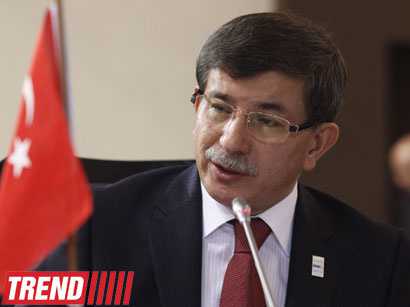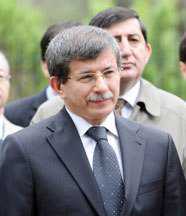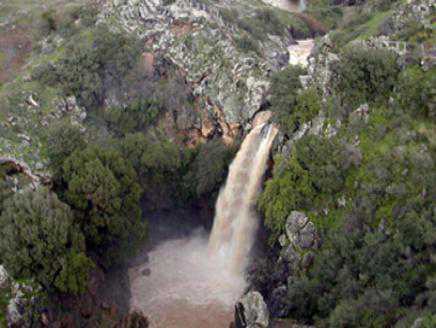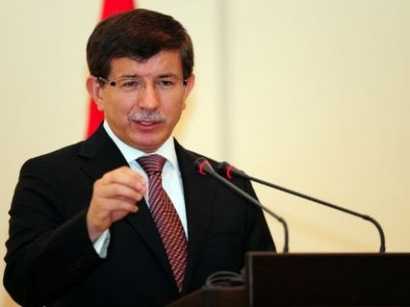Nobody can test our loyalty, said Davutoglu, added looking forward to see the documents to be made public by Wikileaks on Friday.
Saturday, 27 November 2010 12:05
Turkish Foreign Minister Ahmet Davutoglu said that Turkey was not an object in the relations with its allies.
Davutoglu said that Turkey was not an object within NATO, adding that Turkey was not an object in its relations with the U.S., NATO, EU, Russia or any countries.
Commenting on the recent NATO summit in Lisbon, Davutoglu said that the decision which was made in the summit was completely for defense, adding that the issue was not a matter of loyalty of Turkey to NATO.
The decision indicates that Turkey is an influential member of NATO, he added.
On November 19, NATO leaders adopted a new strategic concept that would shape the future of the Alliance for the next decade and maybe more.
With the document, NATO demanded a better NATO-EU cooperation and asked EU to fulfill its obligations against Turkey for “strategic partnership.”
The document said non-EU NATO allies (Turkey, Norway, Iceland) had significant contributions to EU missions, adding, “for the strategic partnership between NATO and the EU, their fullest involvement in these efforts is essential.”
“Turkey in its decision-making process”
This expression was added to the text after Turkey’s demands. It reflects expectations regarding Turkey’s partner membership to European Defense Agency, recognition of Ankara in European security and defense policy, and inclusion of Turkey in its decision-making process for operations.
“We are determined to make our contribution to create more favourable circumstances through which we will fully strengthen the strategic partnership with the EU, in the spirit of full mutual openness, transparency, complementarity and respect for the autonomy and institutional integrity of both organizations,” it said.
“NATO members will always assist each other against attack, in accordance with Article 5 of the Washington Treaty. That commitment remains firm and binding,” it said.
“Deterrence, based on an appropriate mix of nuclear and conventional capabilities, remains a core element of our overall strategy. The circumstances in which any use of nuclear weapons might have to be contemplated are extremely remote. As long as nuclear weapons exist, NATO will remain a nuclear alliance,” the strategy paper said.
Turkey repeatedly said that NATO should not target any other country as a threat and this view was reflected in the paper.
“The Alliance does not consider any country to be its adversary. However, no one should doubt NATO’s resolve if the security of any of its members were to be threatened,” the document said.
“Let Wiki reveal”
Davutoglu said that it was out of question to tolerate or not to take measures on any terrorist activity from Turkey to neighboring countries especially to Iraq.
Speaking at a program in private CNNTurk channel on Friday, Davutoglu said that Iraqi officials also appreciated this stance of Turkey.
Commenting on news that Wikileaks web-site’s announcing that it would unveil documents claiming that “some elements in the U.S. support PKK terrorist organization, and some assistance are made from Turkey to Iraqi Al Qaeda”, Davutoglu said that those news were speculative at the moment, and it would not be right to make interpretation.
He said that Turkey had always taken serious measures in fight against Al Qaeda. He added that Turkey had always been in close cooperation with the U.S. in fight against terrorism.
Davutoglu said that the fight had been pursued through a tripartite mechanism between Turkey, the U.S. and Iraq as of November, 2008.
Turkey also displayed a determined stance in fight against terrorism during the recent NATO summit in Lisbon, he said.
Regarding Iran’s nuclear program, Davutoglu said that he spoke with Iran’s chief nuclear negotiator Saeed Jalili on the phone today, and they had always tried to reduce the tension between Iran and p5+1 (the U.S., Britain, China, France, Russia and Germany).
AA





